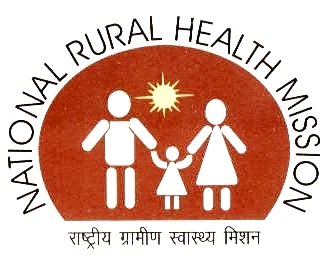Primary health care with skilled nursing facilities and medical technology for prenatal care and delivery. Possibly medical technology for a cesarean section and a neo natal intensive care unit. How complex can it be for the abilities of an upcoming superpower like India? Health care reform is an urgent need, yes, but what does it take to provide a clean and safe birthing environment? Even speaking of skilled nursing facilities, what terribly difficult skills are involved?
Mistry is a carpenter. He has worked with my husband for many years. Today, he arrived in a hurry to collect some money my husband had left for him. Thin, wiry man in his fifties with a cadence from rural Maharashtra, he claimed to be in a hurry and refused tea. Accepting a glass of water, he chatted with me for a short while as he took out a miniature cheap note pad and a “one rupee pen” (the plastic kind you get in trains) from his shirt pocket. Tucked in the spiral bound notebook was a carefully folded A8 size paper with numbers. Presumably accounts or information related with the job. Frowning in concentration, he noted something on the paper, carefully folded it and tucked it into that notepad and returned both note pad and pen to his shirt pocket, hooking the clip of the pen on the cloth so it won’t fall off. Testing to make certain the pen was secure.
This is a working class man from an older generation. No flash and dazzle for him. Careful work. Attention to detail. Careful recording of hard earned money.
When I enquired after his family, he informed me that he needed the money for his daughter’s hospitalization. Alarmed, I asked him what was wrong with her. There was nothing wrong. Her pregnancy due date was near. Mistry was to be a grandfather soon, and his wife had returned to her parent’s home for her first delivery.
He said he had gone to the government primary health care center first, for prenatal care and to register for delivery. He was told to take her to a private maternity home for delivery because the government hospital didn’t have skilled nursing facilities or medical technology – these were the two exact reasons given. Remarking wryly that in his time women had babies at home, he said he was collecting all his dues and taking advances where possible to have money ready. He did not want his daughter to suffer unnecessarily or face risks to her health or life as her pregnancy due date approached.
The people in the government hospital had recommended him to a private hospital telling him that she would be safer there. I was aware that this is likely a routine practice of getting paying customers by advertising to people approaching public health facilities. My mother had been recommended to another private nursing home a few years ago in the very first meeting when we had first started to get her help for schizophrenia. This is in spite of government hospitals boasting of “expert doctors” (who usually own private clinics).
I remarked that private hospitals are not necessarily better with medical care considering my experience with Nisarga’s nightmare birth, where I was in the private maternity hospital that specialized in deliveries and was reputed to be the best in the area. Besides, delivery hardly takes any specialized medical technology in routine cases, and government hospitals with their surgical facilities and doctors on duty and neonatal wards would be far better in a crisis than a private maternity home, where doctors are usually absent till the baby starts crowning.
He agreed. Then paused and said that if it was this bad in a private hospital, the government one would be worse. His daughter may not be helped with pain management or the medical care may be lacking or his grandchild may suffer infections. Can’t dispute that. Particularly the last. Hospitals are hot beds of neonatal infections in India. I have two friends with children who died within a day of birth from infections – ironically, both in highly competent medical facilities with the latest in everything, but this was clearly not the time to bring it up. And in any case, the government hospitals have no better records to go by news.
Besides, the government hospital near their home was not so big and it hadn’t looked very hygienic when he went there. I cringed, knowing that this man is paying for private care he cannot afford, because the government facilities are there, yet not. For a moment I almost recommended a home birth which, in my opinion is probably the most healthy choice, particularly with a home healthcare provider, ideally a midwife or “dai” – check out infant mortality in hospitals), then stopped. It was a long reasoning and against the recommendations of what is best by the “medical profession” in which he had put his faith. If anything went wrong… This was not the time to throw him into indecision on the basis of my ideas, with the pregnancy due date within a week.
He left.
I am left with thoughts of how 65 years after independence, the government’s healthcare system cannot assuredly handle something that has been happening naturally since the birth of mankind and usually happens spontaneously with very little “facilities”. Nor can it monitor private facilities for something this basic. We have discarded ages and ages of wisdom in favor of a new system we cannot offer consistently. So the common man is literally left neither here nor there.
One has to wonder what exactly it is that the government means by healthcare. Or is it healthscare? A citizen has a right to free health care. A government hospital refering patients to private clinics because it doesn’t offer basic medical facilities must ask the patient to submit the bill for reimbursement!



